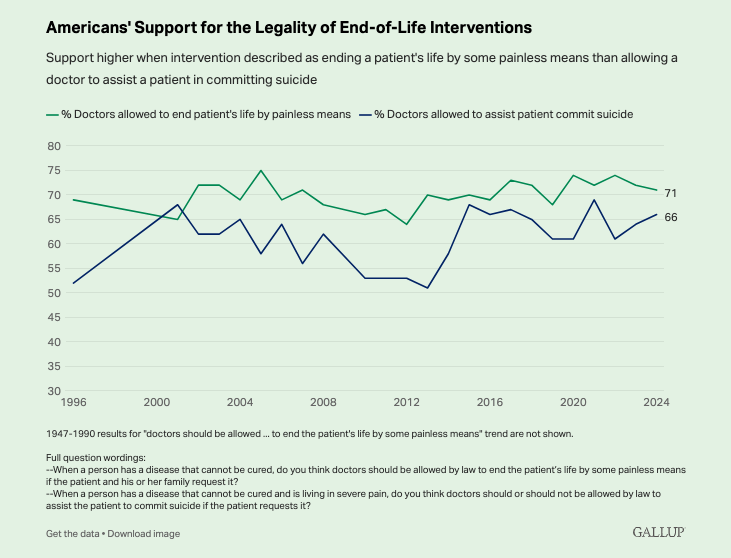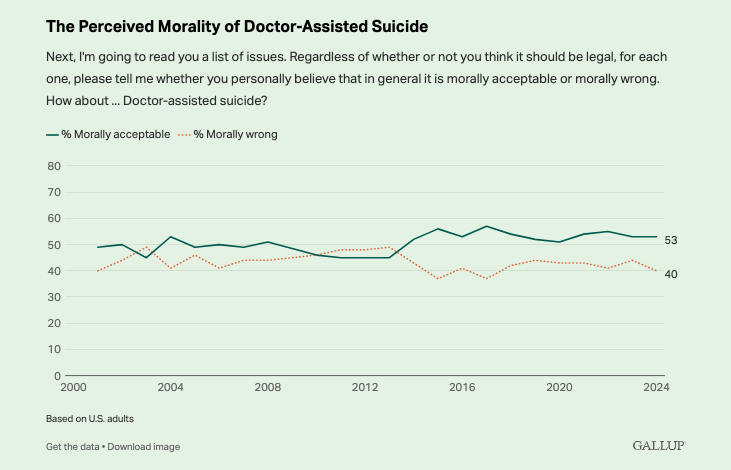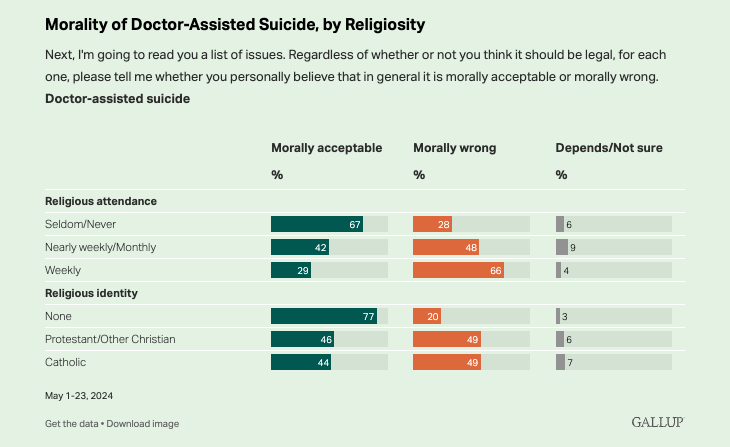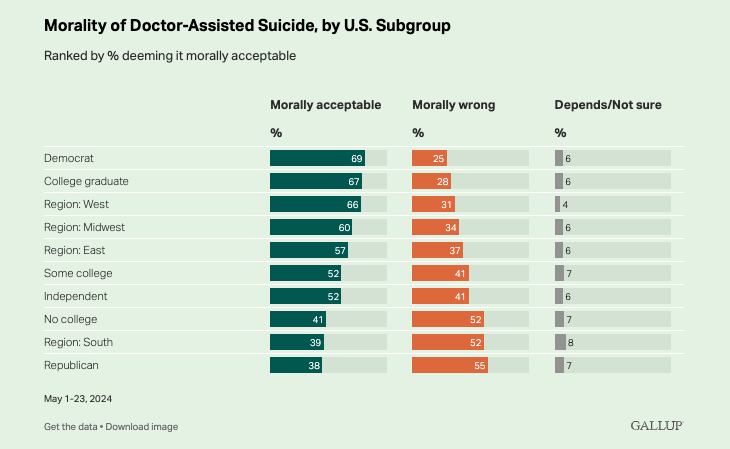(ZENIT News / Atlanta, 17.08.2024).- Americans’ position in regard to euthanasia and assisted suicide continues to be a topic of intense debate, reflecting a stable tendency over the last decade. According to a recent Gallop poll, 71% of citizens support the idea that doctors have the legal faculty to end a patient’s life through an unpainful procedure, so long as it is requested by the patient and his/her family. This support shows a continuity in public opinion, which has fluctuated little over the past three decades.

However, assisted suicide, where a doctor offers the means for a terminal patient to put an end to his/her life, has slightly less support, although a majority: 66% of Americans are in favour of this practice, especially in the case of patients suffering intense pain. This support has shown a slight increase since 2014, contrasting with the lower figures registered between 1996 and 2014, when the average support was 58%.
The Gallop poll reveals a subtle but significant difference in the perception of both practices. Americans tend to support direct euthanasia more than assisted suicide, although this difference is reduced in certain demographic groups. For instance, both Democrats and women show similar levels of support to both practices. In terms of political affiliation, Democrats (79%) are significantly more in favour of the legalization of euthanasia compared with Republicans (61%) and Independents (72%).

The debate is focused not only on the legality but also on the morality of these practices. While a slight majority of 53%, considers assisted suicide by a doctor morally acceptable, 40% regard it as morally incorrect. This point of view has been relatively constant since 2014, marking a change in comparison with the previous years, when the moral acceptance was less.
Religiosity plays a crucial role in the way assisted suicide is perceived. Those that attend religious services regularly are the most prone to consider it morally incorrect (66%), in contrast, 67% of those that rarely or never attend these services, consider it morally acceptable. This tendency is aligned with other conservative positions on topics related to human life, such as abortion and stem cell research.

The support for assisted suicide also varies geographically. Residents in the West Coast of the United States, where this procedure is legal in several states, are the most prone to consider it morally acceptable (66%). In contrast, only 39% of residents in the South of the country share this opinion, a region where no state has legalized assisted suicide.




